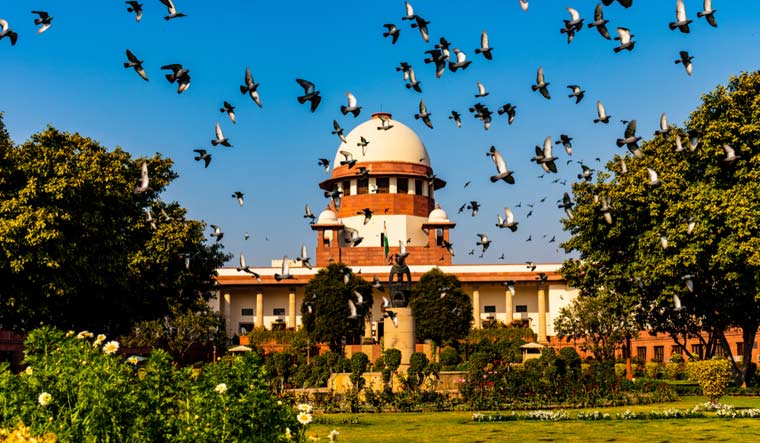The Supreme Court on Wednesday took up pleas filed against the Citizenship (Amendment) Act. As many as 143 petitions had been filed since the Narendra Modi government passed the Citizenship (Amendment) Act in December.
After hearing petitioners briefly, Chief Justice of India S.A. Bobde noted that the "challenge" of the Citizenship Act had to be bifurcated into two sections: One concerning Assam and Tripura and another concerning the act in general. Bobde said notices will be issued on all the petitions filed and gave the Centre four weeks' time to reply. Advocate General K.K. Venugopal had sought six weeks time for the Centre to respond, which was opposed by the petitioners.
Bobde said the Supreme Court would pass orders after four weeks and sought that the petitioners give a list of categories of the matter related to the Citizenship (Amendment) Act. The Supreme Court also restrained High Courts from passing any order on the Citizenship (Amendment) Act. The Supreme Court said it may refer pleas challenging the validity of the Citizenship Amendment Act to a larger Constitution bench, consisting of five justices.
The pleas were heard by a bench led by Chief Justice of India S.A. Bobde and comprising Justices S.A. Nazeer and Sanjiv Khanna. The hearing began amid commotion, with Bobde calling for crowd control due to excessive noise.
Appearing for the petitioners, senior lawyers Kapil Sibal and Abhishek Manu Singhvi, who are also leaders of the Congress, referred to the NPR process, demanding that it be stayed. Alluding to its links with the debate on the NRC and Citizenship Act, Sibal demanded that work on the NPR be postponed by three months. Both Sibal and advocate Rajeev Dhavan asked the Supreme Court to decide whether the Citizenship (Amendment) Act issue needed to be referred to a larger Constitution Bench.
Advocate Vikas Singh, appearing for petitioners from Assam, argued the Citizenship Act violated the Assam Accord. He noted the "situation in Assam was because of Bangladesh" and sought interim orders staying implementation of the Citizenship (Amendment) Act.
also read
- Will not implement Uniform Civil Code, CAA and NRC in West Bengal: CM Mamata
- CAA a major poll issue for AAP in Assam: Atishi
- CAA: Supreme Court issues notice to Centre, to hear case on April 9
- 18 Hindu refugees from Pakistan given Indian citizenship in Ahmedabad
- Govt thrashes US criticism of CAA; calls it 'misplaced, misinformed and unwarranted'
However, Chief Justice Bobde was quoted by Live Law as saying the Supreme Court cannot act on pleas on the Citizenship Act "without 99% of the petitions being served to the government". Emphasising that all have a right to judicial remedy, Bobde noted, "If orders are passed on a batch of petitions, others may say they have been left out."
Bobde agreed with the contention of Attorney-General K.K. Venugopal that seeking the postponement of implementation of the Citizenship Act was equal to seeking a stay on it. Venugopal also sought that the petitions against the Citizenship Act from Assam be heard separately. Bobde agreed to this, noting the Assam petitions would be listed separately after two months.
Most of the pleas had been filed by leaders associated with opposition groups such as the Congress, IUML and Trinamool Congress as well as religious groups and tribal outfits. Notable parties that filed pleas against the Citizenship (Amendment) Act include Congress leader Jairam Ramesh, RJD leader Manoj Jha, Trinamool Congress MP Mahua Moitra, AIMIM leader Asaduddin Owaisi, Muslim body Jamiat Ulama-i-Hind, All Assam Students Union (AASU), Peace Party, CPI and NGOs 'Rihai Manch' and Citizens Against Hate.
Some of the pleas filed in January had sought a stay on implementation of the Citizenship (Amendment) Act, which came into force on January 10.


